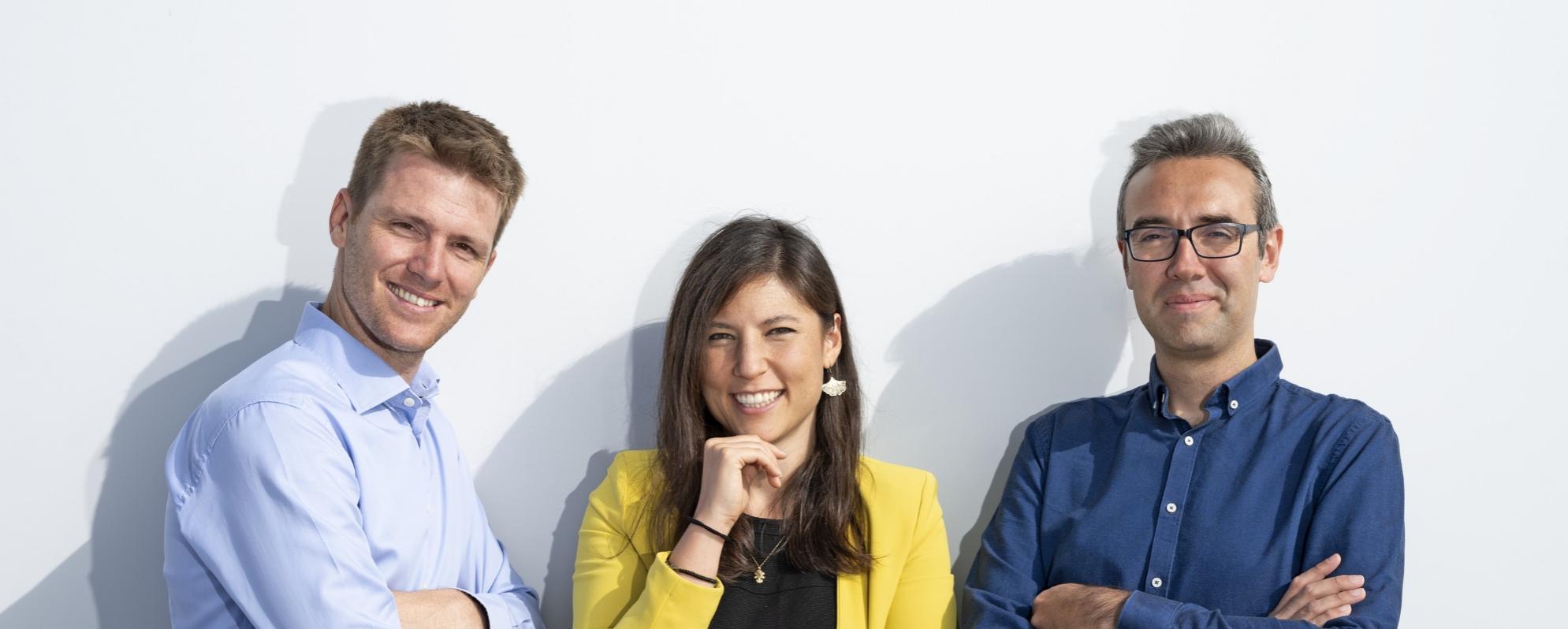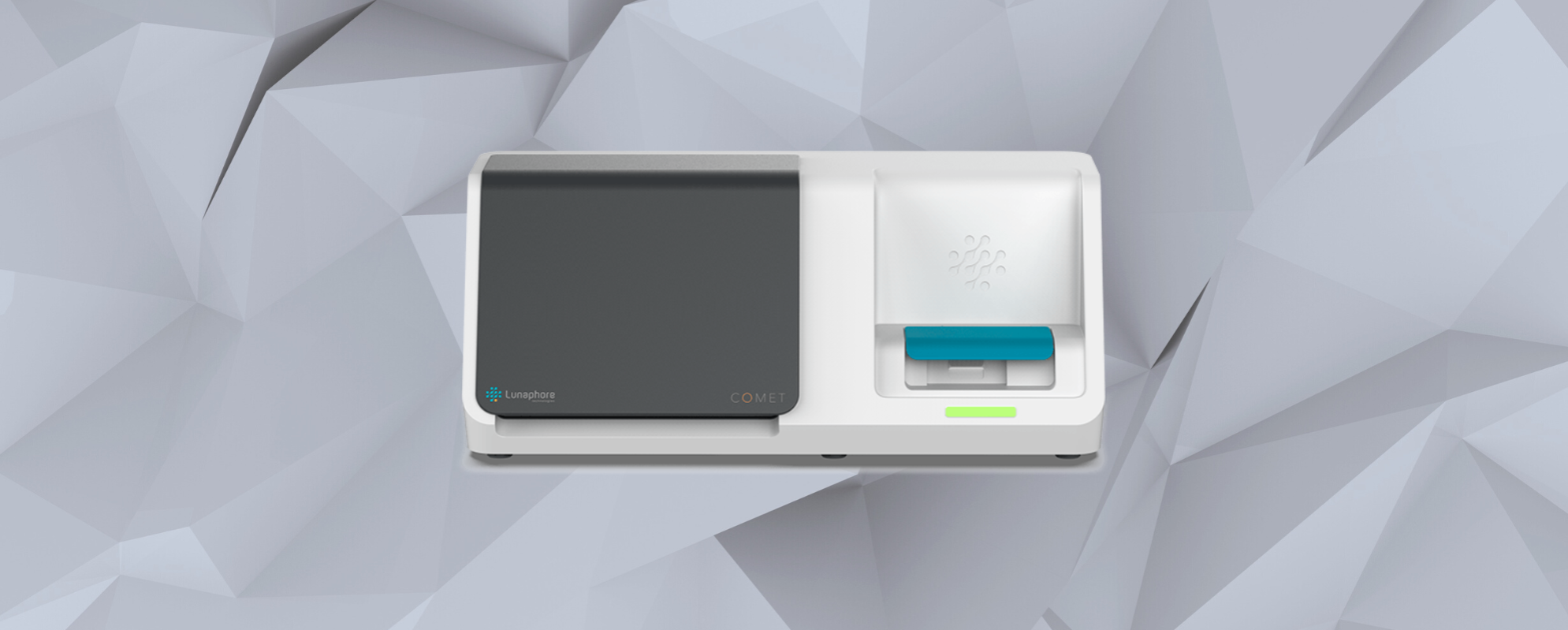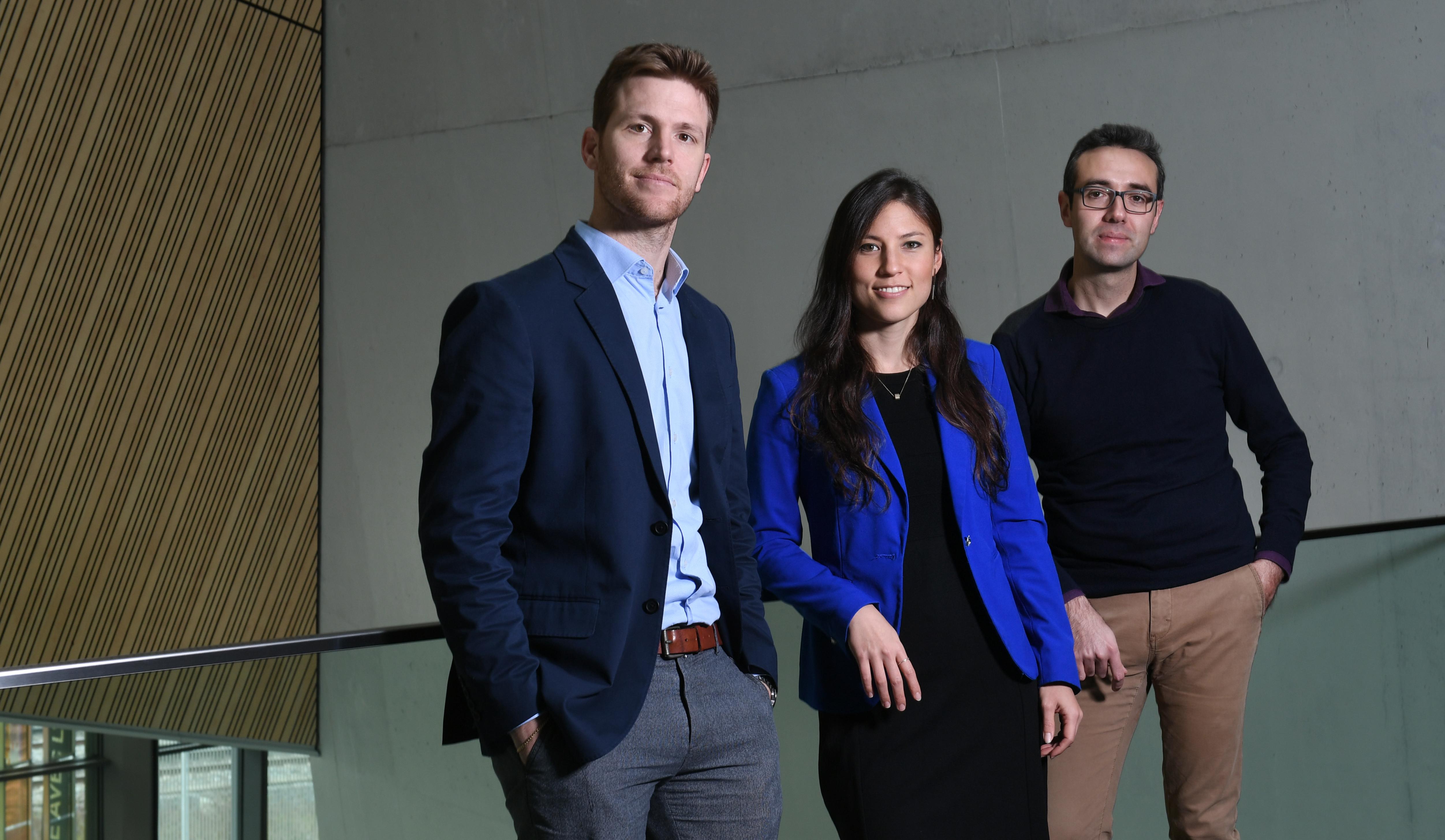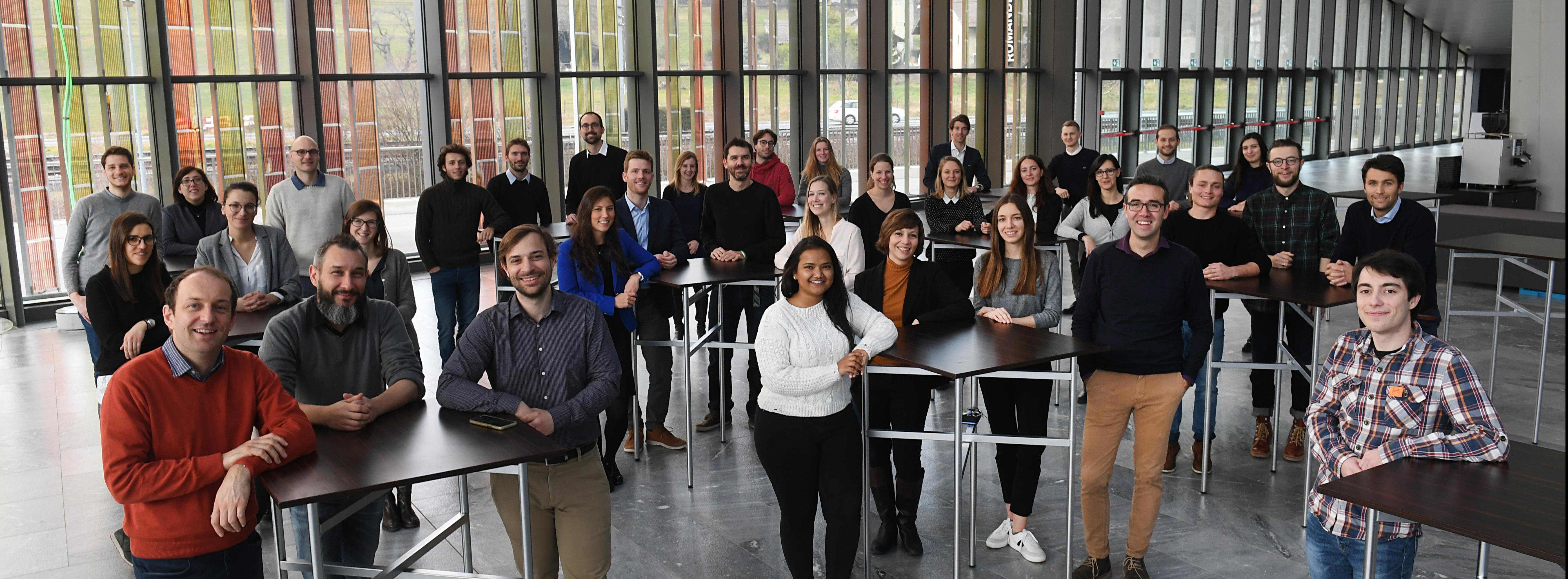Lausanne medtech company Lunaphore has overcome the hurdle from product development to market entry.
For their third round of financing, the Lunaphore founders set a target of a capital injection of CHF 25 million in 2019. However, to some investors, including global funds, that is a little conservative. Some are of the opinion that even twice that amount of new funds would be feasible. Obviously, the lenders are convinced of the potential of the EPFL spin-off. It aims to give personalised medicine a helping hand and is committed to the automation of tissue examination.
The company, founded by Ata Tuna Ciftlik, Diego Gabriel Dupouy and Déborah Heintze in 2014, makes the detection of cancer cell types more efficient and precise. Their devices rely on a completely new technology developed thanks to the findings of microfluidics. Tissue examination, which used to take several hours, now takes 10 to 30 minutes; so, for example, surgeons can receive information about the type of cancerous tumour and its spread throughout the body during surgery.
The company, founded by Ata Tuna Ciftlik, Diego Gabriel Dupouy and Déborah Heintze in 2014, makes the detection of cancer cell types more efficient and precise. Their devices rely on a completely new technology developed thanks to the findings of microfluidics. Tissue examination, which used to take several hours, now takes 10 to 30 minutes; so, for example, surgeons can receive information about the type of cancerous tumour and its spread throughout the body during surgery.
GOODBYE TO GARAGE GROOVE
The first Lunaphore product, LabSat, has been on the market since January 2019 – and since then all hell has broken loose in the company’s office and laboratory space at EPFL Innovation Park. “The complexity of our work has completely changed,” says Ciftlik. “Until now, we had been more concerned with a research and development project.”
But now the operating business is growing significantly. For the company with its 30 employees, it is important to keep several balls in the air at the same time – from the supply chain to distribution and contact with customers. The days when all three founders took part in external meetings are over, as the number of meetings has exploded: “In order to diversify the knowledge, we have had to create new company functions within a short time that did not exist before.”
Production of the Lunaphore instruments is outsourced to specialist companies in Switzerland. About 15 devices should be sold in 2019; however, the start-up is not dependent on the number of instruments delivered, but on who buys them. With the first buyers, according to Ciftlik, it’s a question of “key opinion leaders”. With the market entry, interest is growing – not only among potential customers, primarily research institutions and university hospitals – but also among potential business partners. These are central, because as an unknown start-up, Lunaphore needs one thing above all when dealing with the market in the medical world: confidence. Therefore, it is reliant on well-established partners, including large companies with thousands of employees and billions in sales.
INTENSIVE NEGOTIATIONS
Is not a start-up company inevitably crushed by this unequal relationship? “If you’re really important to a strategic partner, it will go well,” says Ciftlik diplomatically, “even though interests are not necessarily the same.” Intensive negotiations are not just about financial aspects and terms of business, but also the pace: “There’s a substantial difference in timing between big and small companies.”
Lunaphore is already working on a new generation of products to be launched in 2021, which are intended to offer customers a range of additional benefits and expanded analysis options, thus significantly improving the value creation process. As an illustration, Ciftlik draws a comparison with the purchase of a computer. With its new analysis devices, Lunaphore will offer not only the hardware, but the complete solution, including software and peripherals.
And what happens next to the high-flyers from Lausanne? “This is just the beginning,” says CEO Ciftlik. “Since our first instrument came on to the market, we have benefited from customer feedback and our learning curve is becoming steeper.”
Lunaphore Technologies SA: Tumor analysis platform
Lunaphore is disrupting tissue diagnostics field by fundamentally changing the time and resource driven nature of diagnostic assays on tumor sections. Just like the fast sequencing technologies have m... Read more





